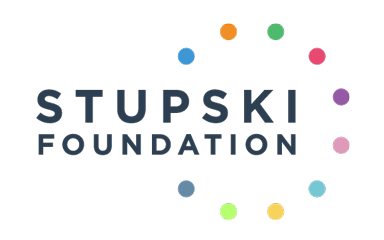Aug. 11, 2021
In January 2021, I began my internship at the Stupski Foundation with little knowledge about what philanthropy was. As I dove into team meetings and grantee discussions and learned the ins and outs of foundation operations, I began to notice a lack of student voices in conversations about grantmaking strategies that would impact students like me. As the digital storytelling intern, I decided to bring student stories into the conversation by creating the podcast “Amplifying Persistence.”
Tune in to the latest episode with Gisel who recently graduated from California State University, East Bay.
“Amplifying Persistence” is a living digital archive of student voices. My family of storytellers and coursework in oral histories taught me about the importance of oral storytelling and the lasting impact it can have on listeners. For centuries, oral histories have served as a vessel for underrepresented voices to reshape incomplete notions of the world. By sharing students’ lived experiences via “Amplifying Persistence,” my contemporaries are reconstructing the narratives of what it’s like to be students in college today.
I learned so much from each student I talked with and through the process of bringing their stories to funders and advocates like you. Here are the main lessons I can share with you as you work to bring stories and community voices into your work.
Broadening perspectives.
The stories students shared on “Amplifying Persistence” broadened the Stupski Postsecondary Success team’s outlook on the issues most important to students today. Here is what Jennifer Nguyen, Stupski’s director of postsecondary success, had to say about how “Amplifying Persistence” impacted her work:
During the pandemic, a lot of the talk among funders and systems has been how hard it has been to engage students and truly hear from students. What “Amplifying Persistence” showed me was that the best people to engage with students (especially during a challenging time) are other students—students who understand the pain and the moments of joy during this past year. I loved listening to stories of students like Lilian at Cal State East Bay, who was given uninterrupted time to talk about the hardships of being an international student during the pandemic. Stories like hers put me in a listening mode and made me think more deeply about student homelessness and basic needs. I’ve been trying to more readily support peer-to-peer models in our work—in hearing more student voices, in outreaching to students, and in distributing resources.
Jen’s takeaways are exactly what I hoped funders would glean from students’ stories. Via the podcast, 16 students shared their unique college experiences during the pandemic, providing the Foundation and its peers funding education with fresh and real perspectives to which they wouldn’t otherwise have had access. Far removed from the problems students face today, grantmakers should all go into “listening mode” to ensure that students can connect their organizations to what will make the biggest difference for students today.
Creating change.
Another valuable aspect of the podcast were the examples students gave about real organizations making meaningful change in their lives today. Nearly every student I spoke with emphasized the important role that community-based organizations and nonprofits played along their journey to college. From my own experience, I understood how critical the support systems that programs like SMART and 10,000 Degrees were in helping me and my peers achieve our goals. Knowing that, I was more than happy to create space for students to talk about how such programs changed their lives. Equally as important was publicizing the programs when promoting the Amplifying Persistence podcast so that funders could learn how to invest in impactful support systems for students. As a funder with a prominent platform and position of influence, Stupski wanted to publicize each program that students mentioned. Through targeted promotion, my colleagues at Stupski and I were able to reach each of our key audiences: from funders to educators to people just curious about college. Here is a short list of the excellent programs that students discussed on the podcast. Learn more about these programs’ work and how you can support them at the links below.
10,000 Degrees is a nationally recognized leader in supporting students from low-income backgrounds to and through college and beyond.
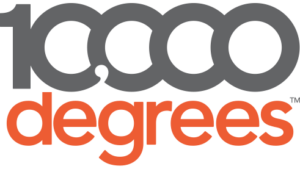
AVID (Advancement Via Individual Determination) is a nonprofit that changes lives by helping schools shift to a more equitable, student-centered approach.
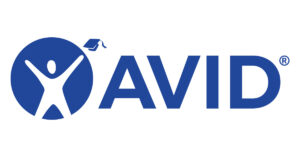
The Braven Accelerator arms students with hard and soft career skills, the opportunity to solve real-world problems, one-on-one mentorship, and valuable networking opportunities.

Pioneers for H.O.P.E (Helping Our Pioneers Excel) provides students at Cal State East Bay experiencing homelessness and financial challenges with meals, temporary housing assistance, emergency funds, and referrals to resources that correlate to students’ success, health, and wellness.
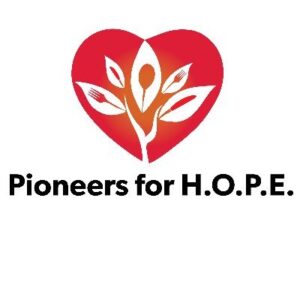
Genesys Works provides pathways to career success for high school students in underserved communities through skills training, meaningful work experiences, and impactful relationships.
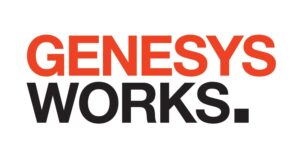
The Posse Foundation identifies, recruits, and trains individuals with extraordinary leadership potential. Posse Scholars receive full-tuition leadership scholarships from Posse’s partner colleges and universities.
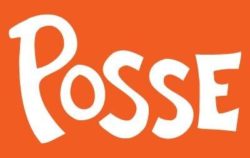
The Puente Project is a national award-winning program that has improved the college-going rate of tens of thousands of California’s educationally underrepresented students for 40 years.
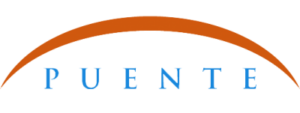
SMART champions education equity by supporting students in overcoming systemic barriers on their journey to a college degree.
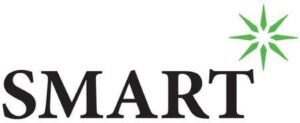
Working together.
Collaboration, which is crucial for maximizing collective impact in the community, was another key part of the podcast. At its core, “Amplifying Persistence” was a partnership between Stupski’s Postsecondary Success team and our community partners. Foundations need to continue directing their research and efforts outward. Instead of gathering and gatekeeping knowledge for their own benefit, they must ensure that their communities are the ones profiting instead. By creating this podcast and sharing it with peer funders, I am proud to have been able to offer a collective pool of student knowledge to education advocates and funders that will impact future funding strategies across the field of college access.
Going beyond numbers.
As part of sharing student knowledge, I gained an even deeper appreciation for qualitative data. The value of qualitative data is often discounted in philanthropic funding strategies because it isn’t as easy to interpret and defend as qualitative data. As I learned from a community partner recently, qualitative data is hard evidence that one cannot argue against. I have come to understand during my seven months working at Stupski that numbers help easily convey a point that can influence decision-making and grantmaking strategy. But I kept asking myself, do those numbers tell the whole story?
No. My experience with “Amplifying Persistence” taught me how essential qualitative data from lived experiences is to understanding the full context of issues in higher education. By amplifying student voices, podcast listeners were able to associate a real person with the numbers behind college access and persistence. People were more willing to act upon something if they knew that they were supporting Kathya, Suzan, Vanessa, and all of the other students featured on the podcast. “Amplifying Persistence” ensured that each student’s individuality was not lost and that their individual experiences were still heard in their own words. Funders, it is important to meet students where they are, learn from each of them, and go beyond generalized data-generated ideas of their struggles.
If there is one thing I hope you can take away from this project is that philanthropic organizations need to continue including student voices in the work they do in education. What I love about my generation is that we are eager to make change in the world. All we need are platforms to make our voices heard and true partnership from decision-makers who have the ability to put our ideas into action. Trust me, from what I have seen, most students are more than willing to share their experiences and feedback with the world. Seek out their stories so that together you can create greater impacts that will make the most meaningful difference for students today.
After these seven months at Stupski, I have learned how to make philanthropy more impactful. Foundations need to continue collaborating with community partners and incorporate student stories and perspectives into grantmaking strategies. I hope that after listening to “Amplifying Persistence,” you feel the same way!
